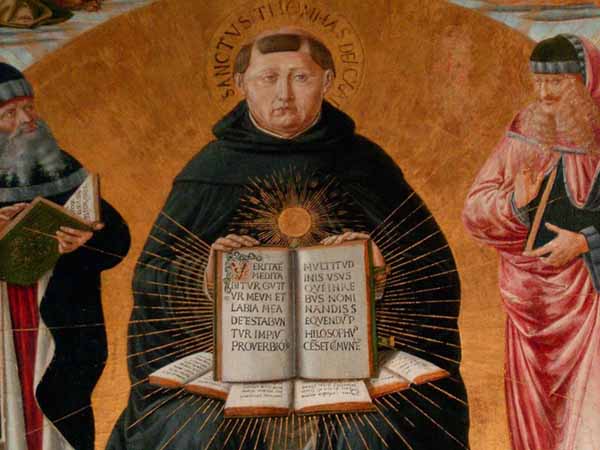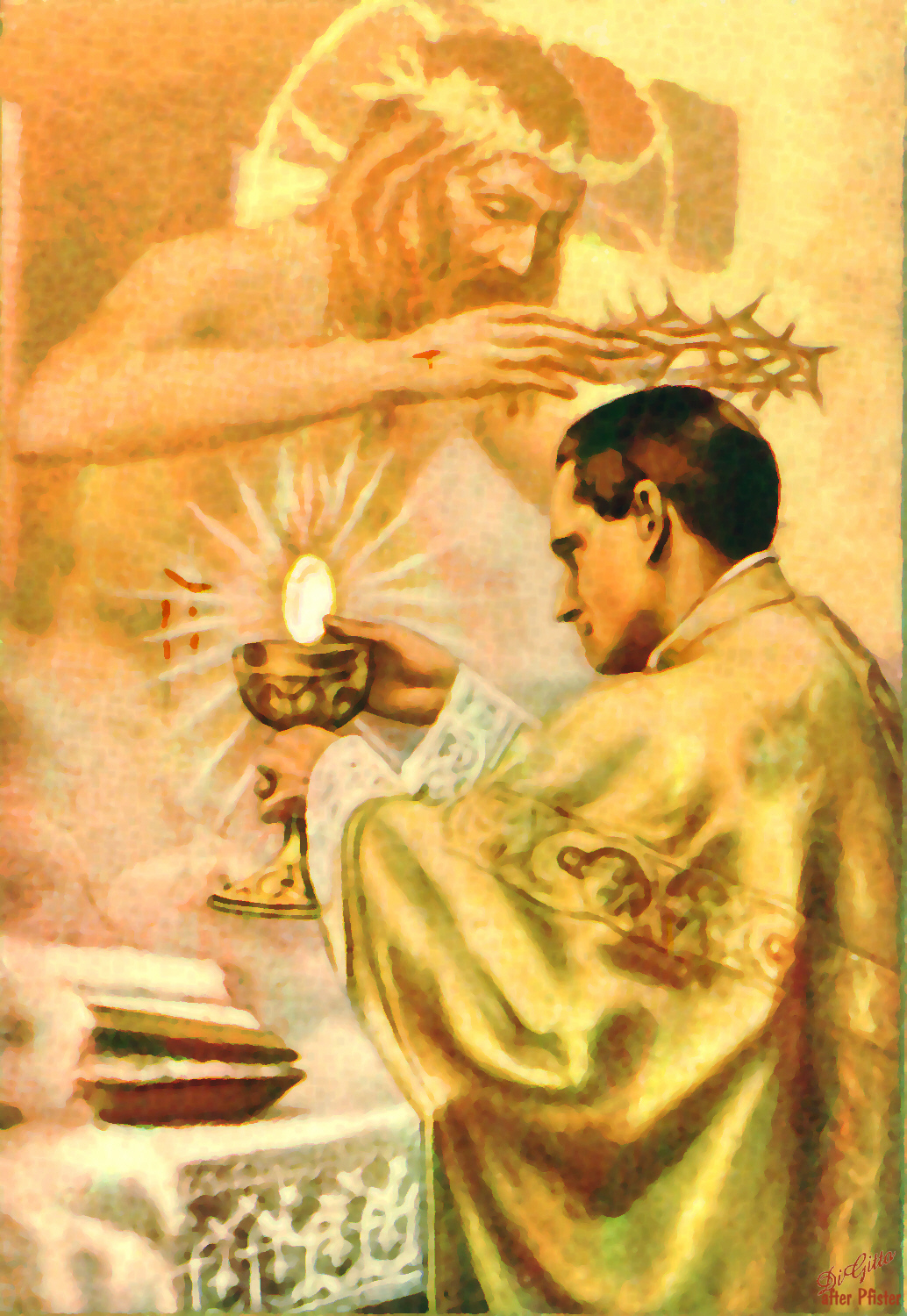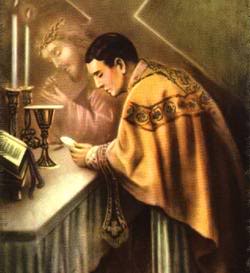I have a list of personal patrons and St. Thomas Aquinas is one of these. Today is his feast day.
Sadly, we have no Mass today for some good reasons, only a Communion service, which I shall skip, as it is in the evening, in the darkness and I have sciatica still.
Oh well. So, to celebrate without the Mass, here is a great idea from the greatest philosopher who ever lived and the most important one for the Catholic Church.
He states that the Eucharistic Sacrifice is so elevated that Christ Himself must offer this. Ergo, the priest is the alter Christus, the other Christ, offering the most sacred sacrifice. Here is Garrigou-Lagrange explaining Aquinas on the Mass. This section is truly sublime and most beautiful. From REALITY—A Synthesis Of Thomistic Thought, Chapter 40.
This sacrament is so elevated that it must be accomplished by Christ in person. [944] And again: In the prayers of the Mass the priest indeed speaks in the person of the Church, which is the Eucharistic unity; but in the sacramental consecration he speaks in the person of Christ, whom by the power of ordination he represents. [945] When he baptizes, he says "I baptize thee": when he absolves, he says "I absolve thee"; but when he consecrates, he says, not "I consecrate this bread," but, "This is My body." [946] And when he says "Hoc est corpus meum," he does not say these words as mere historical statement, but as efficient formula which produces what it signifies, transubstantiation, namely, and the Real Presence. But it is Christ Himself who, by the voice and ministry of the celebrant, performs this substantiating consecration, which is always valid, however personally unworthy the celebrant may be. [947].
Is it then sufficient to say [948] that Christ offers each Mass, not actually, but only virtually, by having instituted the sacrifice and commanded its renewal to the end of the world? This doctrine, from the Thomistic viewpoint, depreciates the role of Christ. Christ Himself it is who offers actually each Mass. Even if the priest, the instrumental minister, should be distracted and have at the moment only a virtual intention, Christ, the one high priest, the principal cause, wills actually, here and now, this transubstantiating consecration. And further, Christ's humanity, as conjoined to His divinity, is the physically instrumental cause of the twofold transubstantiation. [949].
It is in this sense that Thomists, together with the great majority of theologians, understand the following words of the Council of Trent: "In the two sacrifices there is one and the same victim, one and the same priest, who then on the cross offered Himself, and who now, by the instrumentality of His priests, offers Himself anew, the two sacrifices differing only in their mode." [950].
Substantially, then, the Sacrifice of the Mass does not differ from the sacrifice of the cross, since in each we have, not only the same victim, but also the same priest who does the actual offering, though the mode of the immolation differs, one being bloody and physical, the other non-bloody and sacramental. Hence Christ's act of offering the Mass, while it is neither dolorous nor meritorious (since He is no longer viator): is still an act of reparative adoration, of intercession, of thanksgiving, is still the ever-loving action of His heart, is still the soul of the Sacrifice of the Mass. This view stands out clearly in the saint's commentaries on St. Paul, [951] particularly in his insistence on Christ's ever-living intercession. Christ also now, in heaven, says Gonet, [952] prays in the true and proper sense (by intercession): begging divine benefits for us. And His special act of intercession is the act by which, as chief priest of each Mass, He intercedes for us. Thus the interior oblation, always living in Christ's heart, is the very soul of the Sacrifice of the Mass; it arouses and binds to itself the interior oblation of the celebrant and of the faithful united to the celebrant. Such is, beyond doubt, the often repeated doctrine of St. Thomas and his school. [953].
 Each Mass, finally, has a value that is simply infinite. This position is defended by the greatest Thomists against Durandus and Scotus. [954] This value arises from the sublimity both of the victim and of the chief priest, since, substantially, the Sacrifice of the Mass is identified with that on the cross, though the mode of immolation is no longer bloody but sacramental. The unworthiness of the human minister, however great, cannot, says the Council of Trent, reduce this infinite value. Hence one sole Mass can be as profitable for ten thousand persons well disposed as it would be for one, just as the sun can as easily give light and warmth to ten thousand men as to one. Those who object 41 have lost sight, both of the objective infinity which belongs to the victim offered, and of the personal infinity which belongs to the chief priest.
Each Mass, finally, has a value that is simply infinite. This position is defended by the greatest Thomists against Durandus and Scotus. [954] This value arises from the sublimity both of the victim and of the chief priest, since, substantially, the Sacrifice of the Mass is identified with that on the cross, though the mode of immolation is no longer bloody but sacramental. The unworthiness of the human minister, however great, cannot, says the Council of Trent, reduce this infinite value. Hence one sole Mass can be as profitable for ten thousand persons well disposed as it would be for one, just as the sun can as easily give light and warmth to ten thousand men as to one. Those who object 41 have lost sight, both of the objective infinity which belongs to the victim offered, and of the personal infinity which belongs to the chief priest.


